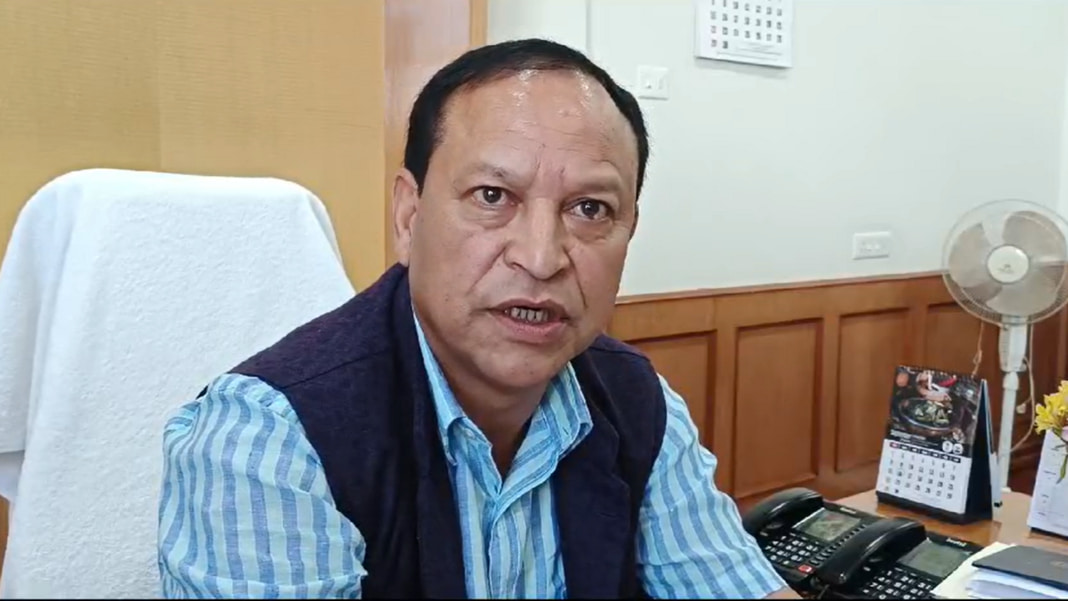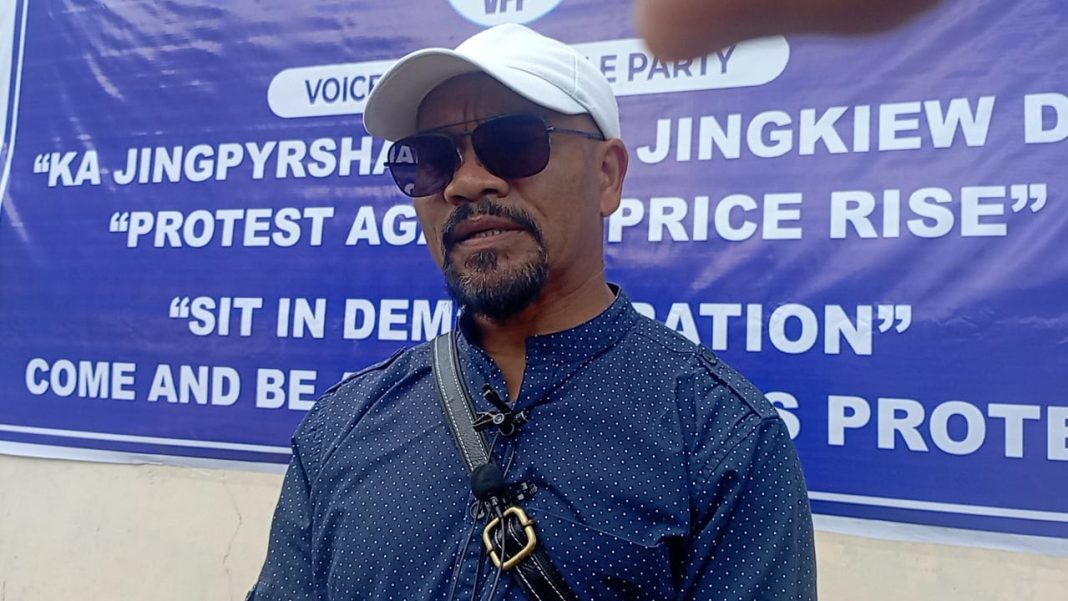Shillong, Sept 14: Food and civil supplies minister Comingone Ymbon on Friday attributed price rise to the state’s dependence on imports for essential commodities among other challenges.
Reacting to allegations of Voice of the People Party (VPP), which held a protest against price rise on Friday, the minister termed the allegations of VPP as “politically motivated”.
He clarified that the price increases are due to logistical challenges, infrastructure limitations, and external factors like climate change, rather than any government mismanagement.
“Meghalaya is not a major producer of vegetables or meat. This dependency drives up costs,” he said.
Citing the state’s dependence on Maharashtra and Bihar for onions, Ymbon said, “Lack of railways and reliance on road transport increases transportation costs, and that also leads to price rise.”
“Mendipathar railway line in Garo Hills as an example of how rail transport can lower prices. Rice is cheaper there by up to ₹13 compared to Shillong,” he said.
He also pointed out the recent restriction on heavy vehicles over 4 metric tonne in plying Umiam bridge as one of the factors of price rise.
“Trucks carrying vegetables and other essentials from Assam now have to take a longer route via Mawryngkneng, increasing transportation costs from ₹100 to ₹200 for deliveries to Shillong,” he said.
Challenging the VPP’s claim about price differences up to around 100% with other north-eastern states, the minister said, “We have the data. I think in other states, the prices are more or less the same. Maybe the difference is only 50 to 100 percent, but that is mostly for vegetables. There is no major difference in the rest of the essential commodities.”
He also assured that a price monitoring mechanism has been put in place to regulate the cost of essential goods.
“The price might be slightly different in different localities. For example, wholesale markets like Barabazar have lower prices compared to retail shops. But all shops must display their prices on boards, and the price monitoring system ensures there’s no hoarding or black marketing,” Ymbon said.
The minister further emphasized that his department, along with District Commissioners, is actively overseeing the situation. “We’ve done 442 inspections so far in 2024 and the government remains vigilant in preventing hoarding and price manipulation,” he said.
To streamline the price-tracking process, Ymbon revealed that a centralized dashboard has been created to monitor the prices of essential commodities across various states. “We use this system to compare our prices with neighbouring states and ensure fairness,” he explained.




